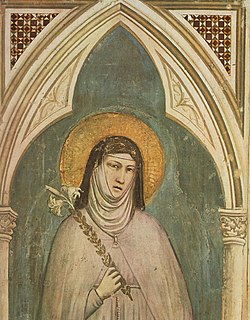Izabella is a Polish feminine given name. Notable people with the name include:
Alexandra is the feminine form of the given name Alexander. Etymologically, the name is a compound of the Greek verb ἀλέξειν and ἀνήρ. Thus it may be roughly translated as "defender of man" or "protector of man". The name Alexandra was one of the epithets given to the Greek goddess Hera and as such is usually taken to mean "one who comes to save warriors". The earliest attested form of the name is the Mycenaean Greek 𐀀𐀩𐀏𐀭𐀅𐀨, written in the Linear B syllabic script.

Izabella Scorupco is a Polish-Swedish actress, singer and model. She is best known for having played Bond girl Natalya Simonova in the 1995 James Bond film GoldenEye. She is also known for her cover of the Shirley & Company song "Shame, Shame, Shame" which was released in 1992 and became a European hit.
Hayek, Hayki or AlHayki is a surname:
Anya, Ania or Anja is a given name. The names are feminine in some cultures, and unisex in several African and European countries.
Zieliński is the eighth most common surname in Poland, and is also common in other countries in various forms. The first Polish records of the surname date to the 15th century. Without diacritical marks, it is spelled Zielinski. The Russianized form is Zelinski (Зелинский).
Krawczyk is the 17th most common surname in Poland. Tailor's Son is an English translation of the name. The Polish root krawiec translates as tailor and the suffix czyk as son of.

Izabella Miko is a Polish actress, dancer, film producer, and environmental activist. She is best known for starring in the film Coyote Ugly and the music videos "Mr. Brightside" and "Miss Atomic Bomb" by The Killers. While a dance student in Poland, Miko was recruited to study at the New York City Ballet at age 15 and later studied acting at the Lee Strasberg Institute. She made her American film debut in Coyote Ugly (2000), followed by a starring part in the vampire thriller The Forsaken (2001).
Beata or Beate is a female given name that occurs in several cultures and languages, including Italian, German, Polish, and Swedish, and which is derived from the Latin beatus, meaning "blessed". Variants include Bea, Beade and Beáta. The name may refer to:
Elizabeth is a feminine given name, a variation of the Hebrew name Elisheva (אֱלִישֶׁבַע), meaning "My God is an oath" or "My God is abundance", as rendered in the Septuagint.
Adamczyk is a Polish surname. Notable people with the surname include:
Czartoryska is the feminine form the Polish surname Czartoryski. Female members of this family have included:

Clara or Klara is a female given name. It is the feminine form of the Late Latin name Clarus which meant "clear, bright, famous". Various early male Christian saints were named Clarus; the feminine form became popular after the 13th-century Saint Clare of Assisi, one of the followers of Saint Francis, who renounced her privileged background and founded the order of Poor Clares.
Cieślak is a Polish surname, it may refer to:
Antonowicz is a Polish surname derived from the Antonius root name. It may refer to:
Isabella is a feminine given name, which is the Latinised form of Hebrew Elisheba or the Latinised form of Jezebel. It is common in Italy and fifth most popular name in the United States in 2019. Diminutive name: Bella It may refer to:
Chiappini is an Italian surname. Notable people with the surname include:
Poniatowski is a Polish surname. It may also be transliterated via Russian language as Ponyatovsky, Ponyatovskiy or Ponyatovski.
Miko is a surname. Notable people with this surname include:
Magda is a feminine given name, sometimes a short form (hypocorism) of names such as Magdalena, which may refer to: